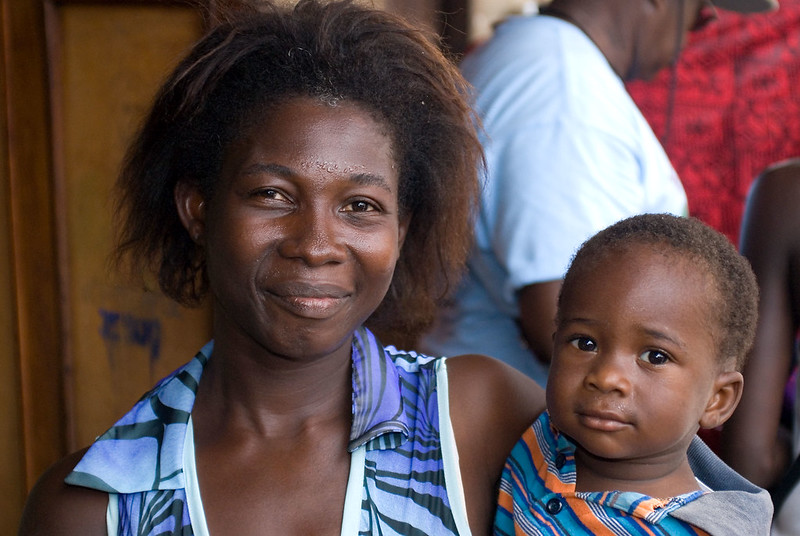Maternal Support in Ghana
 Research by Economic and Social Research Council-funded doctoral student Winfred Dotse-Gborgbortsi examined how travel time to vital health facilities and the quality of obstetric services affect women’s access to high-quality maternal health care in Ghana. His study, which used spatial analysis to integrate health facility databases with routine health data for more than 40,000 women in more than 150 facilities across 33 districts in Eastern Ghana, revealed disparities in the provision of skilled obstetric care.
Research by Economic and Social Research Council-funded doctoral student Winfred Dotse-Gborgbortsi examined how travel time to vital health facilities and the quality of obstetric services affect women’s access to high-quality maternal health care in Ghana. His study, which used spatial analysis to integrate health facility databases with routine health data for more than 40,000 women in more than 150 facilities across 33 districts in Eastern Ghana, revealed disparities in the provision of skilled obstetric care.
In this region, 95% of the required hours for obstetricians and gynecologists were unmet, highlighting the significant gap between the care women need and what is available. Dotse-Gborgbortsi says: “My use of disaggregated data highlights the danger of national estimates, which can mask regional and district shortages of the most skilled health care staff.”
Since this research was conducted, it has contributed to addressing the geographic inequalities women face in accessing birth services and maternal support in Ghana. Despite expanding primary care facilities, the study suggests that improving the quality of health care services, rather than simply increasing the number of nearby facilities, is essential for increasing the uptake of skilled birth attendance and enhancing maternal health outcomes. Therefore, here are some organizations providing maternal support in Ghana.
Amref Health Africa
Amref Health Africa is enhancing maternal health by supporting women in giving birth safely and with dignity. The organization employs various strategies to improve maternal support and related issues in Ghana, including training and supporting midwives through in-person and online training to upskill their current roles. Additionally, Amref trains community health workers to provide local communities with advice and information on available support and how women can access it.
The organization also incorporates sexual and reproductive health into its maternal health programs, empowering women to make informed choices about family planning and contraception. Furthermore, Amref advocates at the highest levels for increased investments in maternal health care, including a significant rise in trained midwives and nurses available to support women throughout their pregnancies.
Eni Foundation
The Eni Foundation supported a Ghana health care project to improve primary medical services for mothers and children. The project focuses on enhancing staff’s medical and management skills, developing infrastructure and increasing community knowledge of hygiene, health issues and healthy living to serve mothers and children better.
The foundation’s aims are divided into four categories:
- Community Level: Expanding essential maternal and child health services in eight underserved areas, including large-scale vaccination programs and educational initiatives.
- Sub-District Level: Enhancing maternal and child medical services and emergency obstetric and neonatal care in 10 health centers.
- District Level: Improving key inpatient and outpatient maternal and child services at two district hospitals, particularly in emergency obstetric and neonatal care (including surgery).
- District and Regional Level: Strengthening health care management through improved data collection, planning, monitoring and assessment of health care programs, training medical staff and teaching at nursing colleges.
Maternal Rights
Maternal Rights is a nonprofit organization dedicated to improving pregnancy, childbirth and postpartum outcomes for marginalized women. Through advocacy, education and access to resources, the organization aims to enhance maternal and infant health and reproductive and sexual health. Maternal Rights collaborates with local health facilities and communities in Ghana to enhance maternal health care in low-resource settings.
The organization offers volunteering opportunities for individuals to become agents of change and make a difference. It strives to amplify the suppressed voices of women and children in underprivileged communities and provide collaboration opportunities and partnerships to improve the quality of life for women and children.
Final Note
Pregnancy and childbirth pose significant risks to women and girls in sub-Saharan Africa. In Ghana, most women have their first child by age 22, making maternal support initiatives crucial for the health and well-being of the population. Organizations like Amref Health Africa and the Eni Foundation enhance health care services and train local health workers, while Maternal Rights amplifies the voices of marginalized women and provides access to vital resources. Together, these initiatives aim to ensure safer pregnancies and better maternal and child health outcomes in the country.
– Sadie Virgin
Sadie is based in Newport, South Wales, UK and focuses on Good News for The Borgen Project.
Photo: Flickr
